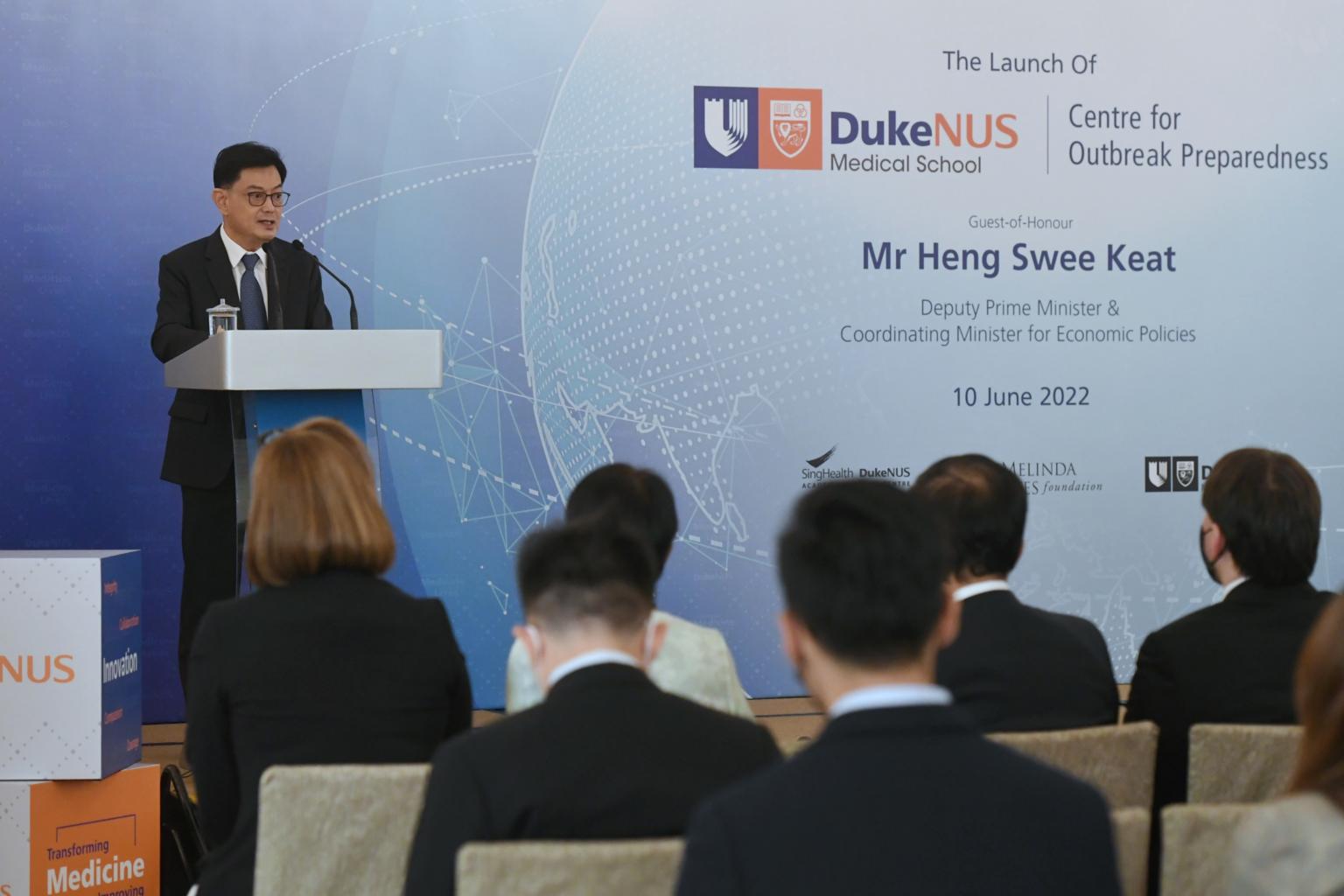New Duke-NUS research institute set up to prepare region for disease outbreaks
Sign up now: Get ST's newsletters delivered to your inbox

Deputy Prime Minister Heng Swee Keat at the launch of the Centre for Outbreak Preparedness on June 10, 2022.
ST PHOTO: CHONG JUN LIANG
Follow topic:
SINGAPORE - A new Singapore-based research institute will help Asian scientists prepare for the next pandemic and equip them to swing into action when that time comes.
Called the Centre for Outbreak Preparedness, it was launched by Duke-NUS Medical School on Friday (June 10).
Centre director Paul Pronyk stressed the importance of cooperation across borders, especially since this pandemic will not be the last.
"Sometimes when we think about Covid-19, we think that it is a once-in-a-generation event, something to document in the history books," said Professor Pronyk, who is an infectious diseases physician by training.
"But... Asia is one of the most high-risk regions in the world for human outbreaks, and I can guarantee you that Covid-19 is not going to be our past."
The event was held at the Fullerton Hotel and attended by Deputy Prime Minister Heng Swee Keat and leaders from Singapore's healthcare sector.
Duke-NUS also announced that it is working with the Bill and Melinda Gates Foundation - a United States-based philanthropic organisation - to set up the Asia Pathogen Genomics Initiative to improve genomic surveillance in South and South-east Asia.
This means monitoring viruses and their variants in order to be aware of potential threats. It plugs a key gap in pandemic preparedness, Mr Heng said.
He noted that the pandemic is now under control in many parts of the world, and global attention has shifted to managing the fallout of the Ukraine crisis, global supply chain disruptions and the risk of another global recession.
"But we cannot afford to take our eye off Covid-19. Neither can we afford to take the foot off the pedal in preparing for the next pandemic," added Mr Heng.
"If we are distracted from this pandemic and in preparing for the next one, the repercussions can potentially be devastating."
Some studies indicate that South-east Asia - with its higher population density, environmental changes, shifts in human-animal interaction and increasing human mobility - is most at risk of the next pandemic, he added.
The event was rounded up by a discussion on regional pandemic preparedness, involving five experts from local and overseas organisations, and moderated by Straits Times senior health correspondent Salma Khalik.
Topics discussed included genetic sequencing, diagnostics technology and the importance of sharing best practices with other countries.
One of the panellists was Professor Wang Linfa, who is executive director of the Health Ministry's Programme for Research in Epidemic Preparedness and Response.
He compared the next pandemic to an international sporting event such as the football World Cup. Like soccer players, scientists must prepare in advance for the big day, he said.
But unlike athletes, scientists do not know when the next "competition" will be or even what sport they will have to play, Ms Khalik pointed out.
"You're preparing for football and maybe netball and running, and then suddenly it is swimming," she said.
Prof Wang acknowledged that there is no crystal ball to predict the future, but experience can prove a useful guide to what to expect. He believes that Disease X - the code name for a future, unknown but highly infectious disease - is likely to belong to one of three groups of viruses.
"I cannot be 100 per cent sure that we are ready. But I think that we are confident."

